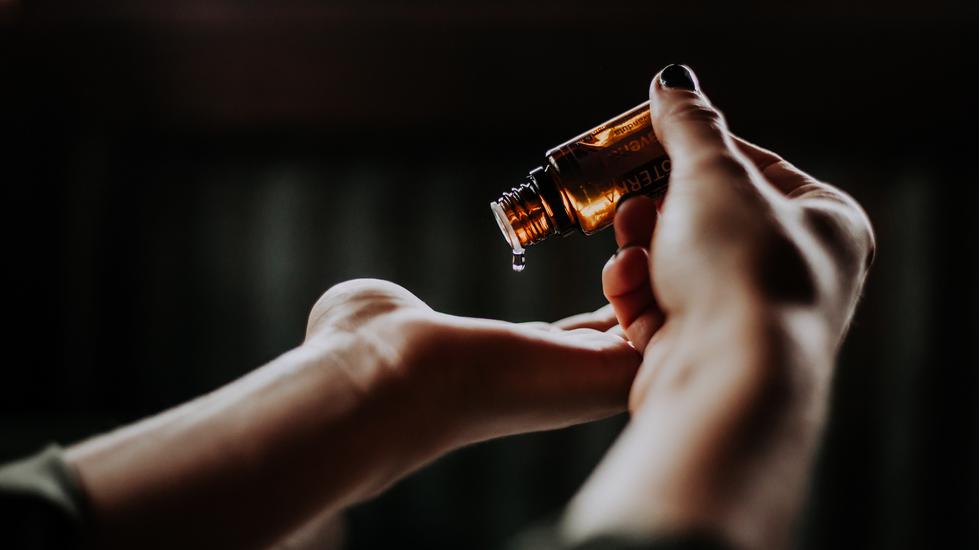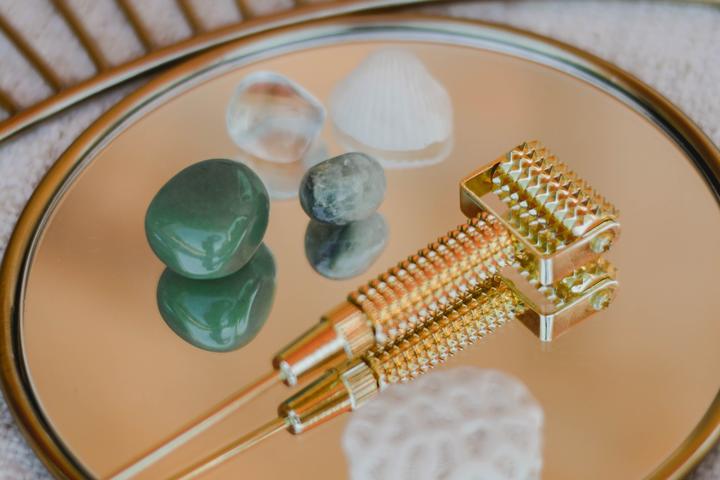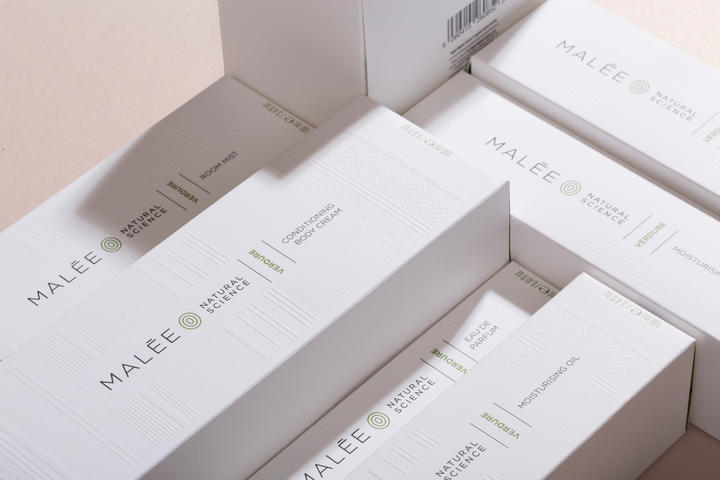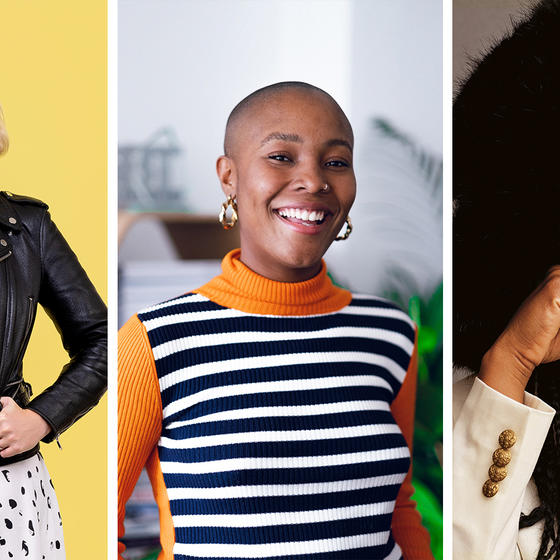Whether it’s being celebrated online or in our make-up bags, there’s a new hero ingredient that’s unifying the beauty industry: community.
05 March, 2021

This article first appears in Volume 33: Collective.
From
London to Ghana, Los
Angeles to Seoul, attitudes towards beauty are shifting. As beauty
lovers connect across the world, inclusivity is becoming the
industry’s new foundation. Doors once closed to minority groups and
those who don’t conform to conventional aesthetic standards are
being flung open.
Social media is saturated with content creators. But away from
the ring lights, INFLUENCER10 discount codes and paid-partnership
disclaimers, skincare enthusiasts are going guerilla and building
their own online communities. These people are as hungry for
unbiased advice away from the #sponsoredpost as they are for the
inside scoop on Korean skincare.
In days gone by, your seven-point skincare routine might have
been discovered by way of an Avon lady knocking on the door. But
today many of us are logging into Facebook groups to share our
latest, greatest and wasted beauty buys. Unlike Instagram’s
rose-tinted highlights, these groups are run by real people and
resemble the real world. There are no filters, no trolls and
definitely no paid-for bullshit. Forget Facebook marketplace and a
feed littered with the relationship updates of an old school flame;
in these niche networks you’ll find hundreds of highly engaged,
extremely knowledgeable beauty obsessives.
These self-care sanctuaries are the online version of drunk girls hanging out in the bathroom – except they aren’t female only but inclusive places for all.
Mira Aguirre, the admin of Skincare and Beauty 101, watched the community
graduate from flawless, curated content to honest recommendations
suggested by peers. “I think the desire for authenticity has really
helped Facebook groups grow,” she says. “People trust community
forums more and are turning to them for guidance, as opposed to the
traditional influencer.”
Indeed, far from being a platform that’s dying out, Facebook’s
beauty groups are overflowing with make-up and skincare enthusiasts
building bonds over everything from brands to breakouts and
blemishes. In comparison to the often narcissistic tone and
individualism you find on Instagram and unlike Reddit’s r/beauty
channel or MakeupAlley, where long-standing members dominate and
dictate the flow of boards, a Facebook group’s focus is on forging
connections. Replies tend to be near instant, non-judgemental and
there’s a noticeable willingness to share.

Among the comments, suggestions and peer-to-peer
recommendations, members are forming friendships. Lucy Johnson,
admin of Korean Beauty Fanatics – a group with more than 15,000
members – can testify to making connections that have moved from
Facebook to FaceTime to, well, facetime. “It can be hard to make
friends as an adult, but Facebook forums are amazing for meeting
new people.” Likewise, Mira turned to her skincare group for uplift
when IRL connection was lacking. “I sought refuge from the worries,
financial insecurity and restrictions I was facing in real life.”
People may be drawn to these groups for the latest sheet mask or
eye-shadow palette release, but they stay for the community.
Scroll through posts and you’ll find as many requests for life
advice as there are for planet-friendly sun cream. My boyfriend
cheated on me. Dump him. My housemates keep stealing my skincare.
Set a booby trap. I feel lonely in lockdown. Want to chat? Members
have cheered one another on through surgeries, gender transitioning
and trauma. These self-care sanctuaries are the online version of
drunk girls hanging out in the bathroom – except they aren’t female
only but inclusive places for all.
As people unite over holy-grail products and a passion for palettes, the sense of place in the beauty community is strengthening too.
Big beauty brands are catching on too. Versed’s The Good Skin
Crowd has 27,000 members; 14,600 people are in the Beauty Pie
Community; Glossier’s Into the Gloss: The Group has 21,000.
“They’re like focus groups on steroids,” says Rob Weston, Chief
Marketing Officer at Beauty Pie. Beauty labels are harnessing the
power of these pages, using them to test and learn. “There have
been instances where we’ve changed a product based on conversations
with people in the group,” Rob affirms. Brands have minimal input,
rarely interject and let chats unfold organically. Far from simply
shelling out freebies or performing an exaggerated PR stunt, brands
are founding these groups in order to carve a deeper connection
with their audience.
It’s not just big names tapping into these virtually established
communities; they’re a powerful source for independents too. “The
support for smaller skincare brands has been overwhelming,” agrees
Mira. The UK-based, women-owned, sustainable skincare label
Maysama launched
last year – it was the (first) peak of the pandemic, and sales and
support from Mira’s Facebook community group helped massively. It
was similar for Deepica Mutyala, a long-time beauty-inclusivity
activist and founder of Live Tinted, a community for minority groups
often underrepresented in mainstream beauty. Feedback from her
online “family” played a vital part in creating her first product,
Huestick, and soon after launch, the #TintFam clicked “add to
basket” in droves.

The next generation of beauty isn’t just being cultivated
online, however. As people from around the world unite over
holy-grail products and a passion for palettes, the sense of place
in the beauty community is strengthening too. Joining the likes of
K-beauty, Scandi beauty and G-beauty (that’s German beauty, for the
uninitiated) in the mainstream spotlight is African
beauty. Of course, it’s been around for centuries, but only now
is it getting the attention it deserves thanks to an expanding
definition of what “beauty” means and the long-awaited celebration
of Black culture on the global stage.
Black beauty entrepreneurs such as Charis
Udeh are helping African beauty to get noticed. Based in the
UK, she has strong ties to her upbringing in Nigeria – and it
shows. Charis’ skincare range KYALLI uses recipes passed down by her
grandmother and great-aunt, as well as indigenous ingredients
including marula oil and yakuwa-plant extract. Likewise, Malée, whose luxury
skincare and fragrances were born in South Africa, wants to develop
wider connections with the world through sharing cultural
knowledge. Malée’s sell-out staples are modelled around the ancient
wisdom that was passed down to founder Zeze Oriaikhi-Sao by her
extended family. The same blend of botanicals used in her
bestselling Natural Conditioning Verdure Body Cream – white
beeswax, almond oil, shea – have been used as skincare staples in
African beauty regimes for generations. It’s thanks to brands like
this that game-changing ingredients are finally infiltrating the
global market.
Whether it’s being celebrated online or in our make-up bags,
community is the new hero ingredient that’s unifying the beauty
industry. Through the democratisation of knowledge and the
strengthening of global connections, it’s a space that is becoming
more inclusive – and all the better for it. In these new beauty
communities, everyone gets a seat at the make-up counter. And
really, that’s where the true beauty lies.
